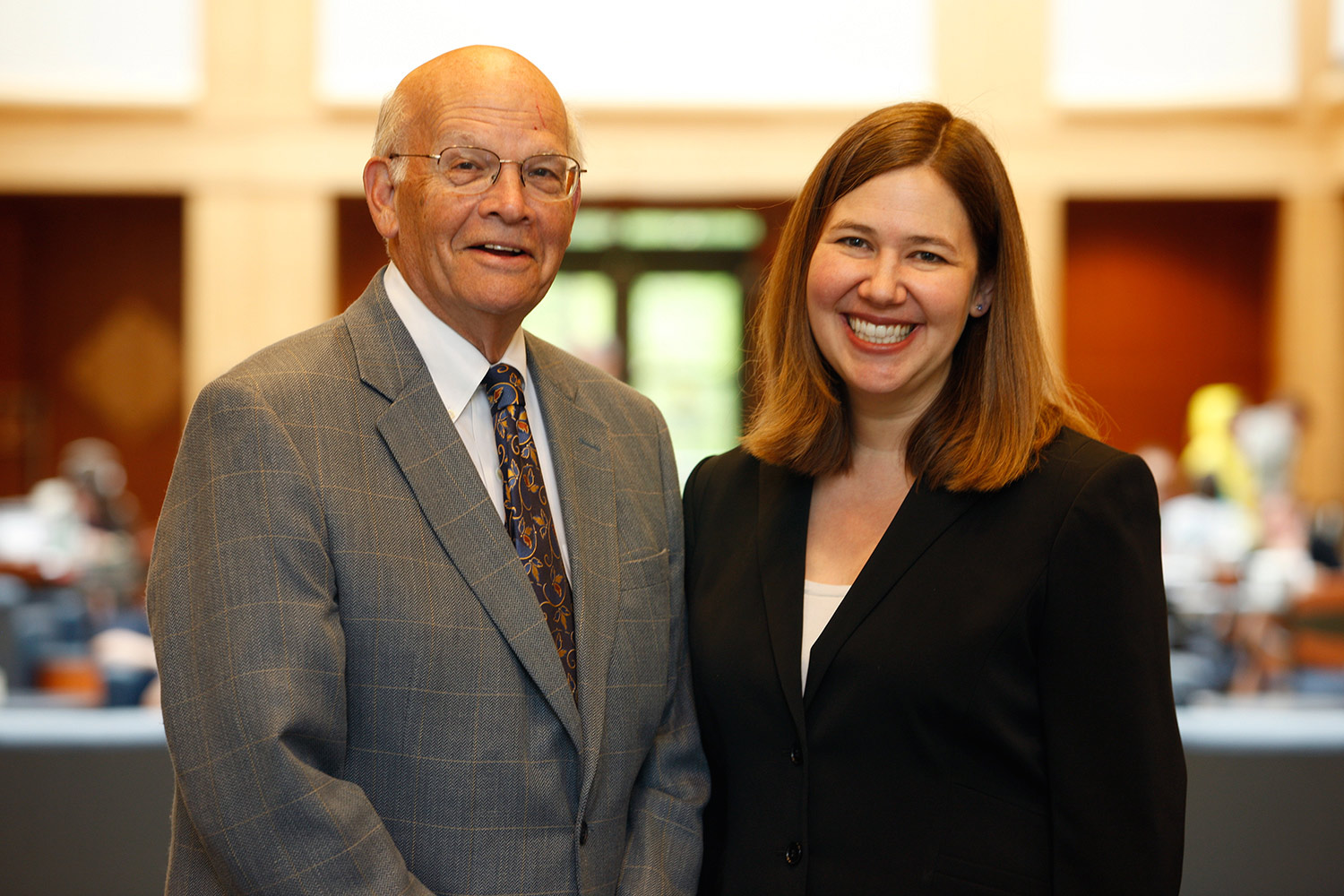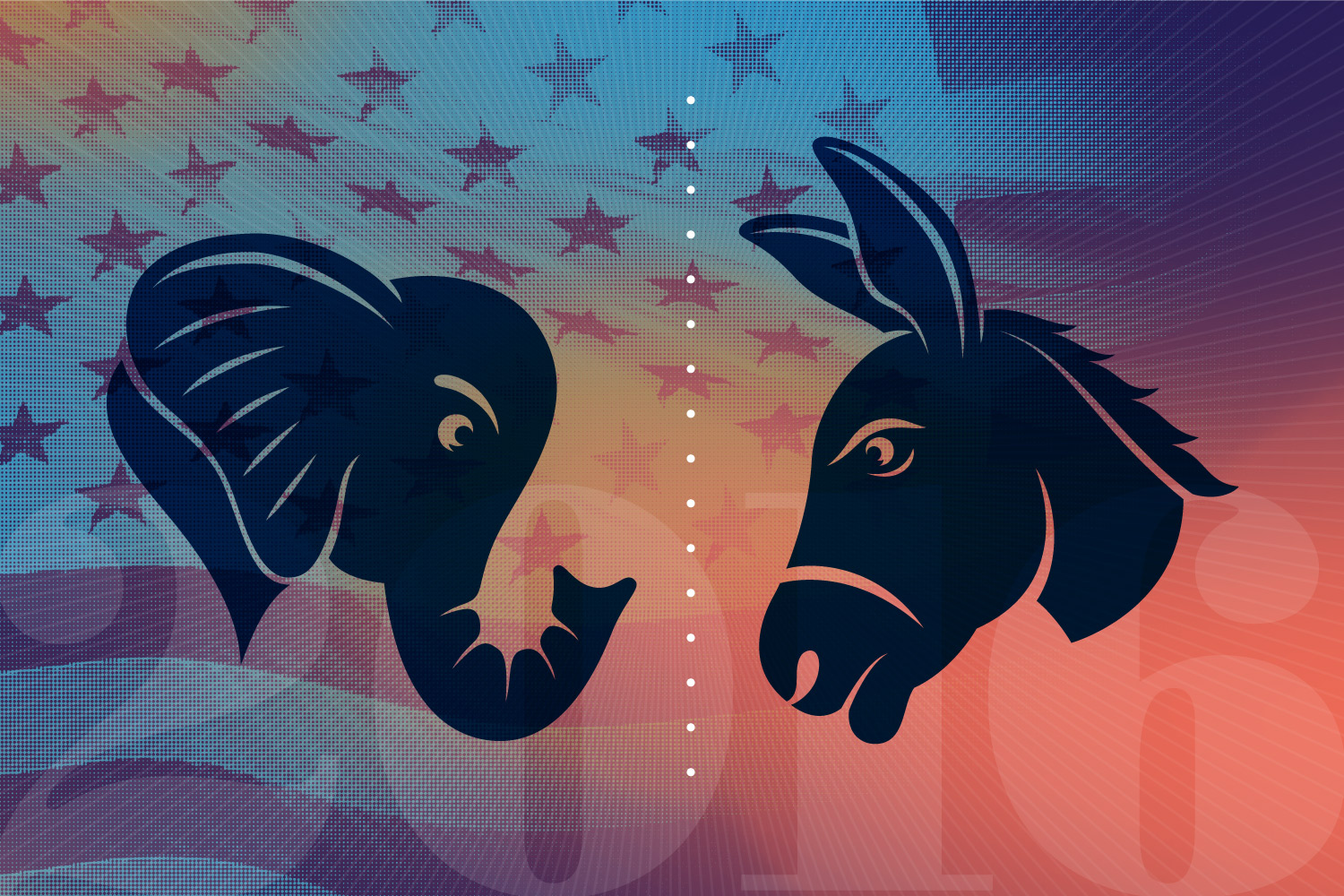Public speaking experts and University of Virginia School of Law professors Robert Sayler and Molly Bishop Shadel recently re-launched their blog, “Tongue-Tied Applied,” to explore how rhetoric functions in the 2016 presidential campaign.
From national conventions and debates to campaign speeches, Sayler and Shadel will evaluate the campaign rhetoric and communication strategies of presumptive Democratic Party nominee Hillary Clinton and presumptive Republican Party nominee Donald Trump.
Sayler and Shadel have been running the Law School’s Public Speaking Program together since 2002. Their blog, a spin-off of their book, “Tongue-Tied America: Reviving the Art of Verbal Persuasion,” is designed to inspire people of all political backgrounds to improve their public speaking skills by using the presidential campaign as an example.
“A presidential race is a perfect forum for exploring that question,” Shadel said. “Everything that’s happening – every major political speech, every debate – are all exercises in verbal persuasion.

Law professors and public speaking experts Robert Sayler and Molly Bishop Shadel are teaming up for the second time to evaluate what makes election speeches soar.
“We’re not trying to take a political position; we’re instead trying to look at how the candidates are expressing their ideas, the rhetorical choices they are making. We are using that as a way to explore how persuasive rhetoric works.”
Using a scorecard based on Aristotle’s classical formula for rhetoric, Sayler and Shadel will use the criteria of ethos (credibility), pathos (emotion) and logos (logic) to judge each candidate’s speech or talking points. In a recent post, the team discusses these rhetorical points and how both Clinton and Trump used them recently.
Throughout the course of the presidential campaign and election, Sayler and Shadel will comment on key speeches and debates. Shadel said she hopes the blog will inspire people to think about their own verbal persuasion skills as well as help voters sort through their initial reactions to the speeches and debates.
“Rhetoric matters because the way a politician speaks can cause people to take action,” Shadel said. “Rhetoric is an important part of campaigning, and we want people to understand what is happening because it enables you to make informed decisions. Voting for somebody just because you like the person, for example, is not necessarily going to be as wise a decision as voting for the person because you understand and agree with the person’s policies.”
Verbal persuasion is not just an important skill for lawyers or politicians bidding for the White House, Shadel said – it’s a skill that everyone should continue to build on. The public is lucky in a sense, Shadel added, to have a firsthand example through the election to see how speech can persuade in some cases and not in others.
Media Contact
Article Information
July 15, 2016
/content/law-professors-critique-presidential-campaign-speeches

